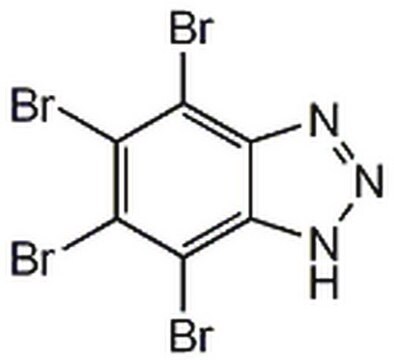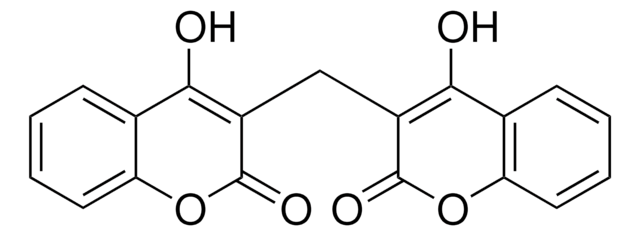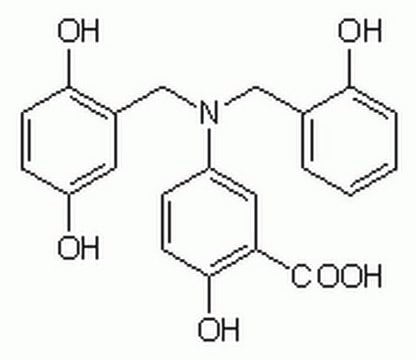287897
Dicoumarol
A cell-permeable quinone reductase inhibitor with anticoagulant properties.
Sinónimos:
Dicoumarol, 3,3ʹ-Methylenebis(4-hydroxycoumarin), Bishydroxycoumarin, Dicumarol
About This Item
Productos recomendados
Quality Level
assay
≥98% (titration)
form
solid
manufacturer/tradename
Calbiochem®
storage condition
OK to freeze
protect from light
color
white
solubility
0.1 M NaOH: 15 mg/mL
pyridine: 50 mg/mL
shipped in
ambient
storage temp.
2-8°C
InChI
1S/C19H12O6/c20-16-10-5-1-3-7-14(10)24-18(22)12(16)9-13-17(21)11-6-2-4-8-15(11)25-19(13)23/h1-8,20-21H,9H2
InChI key
DOBMPNYZJYQDGZ-UHFFFAOYSA-N
General description
Biochem/physiol Actions
Blocks brefeldin A-dependent mono-ADP-ribosylation in vitro
Packaging
Warning
Reconstitution
Other Notes
Krause, D., et al. 2001. J. Biol. Chem.276, 19244.
Pink, J.J., et al. 2000. J. Biol. Chem.275, 5416.
Cross, J.V., et al. 1999. J. Biol. Chem.274, 31150.
Morrow, C.S., et al. 1998. J. Biol. Chem.273, 20114.
Weigert, R., et al. 1997. J. Biol. Chem.272, 14200.
Legal Information
signalword
Danger
hcodes
Hazard Classifications
Acute Tox. 3 Oral - Aquatic Chronic 2 - STOT RE 1 Oral
Storage Class
6.1C - Combustible acute toxic Cat.3 / toxic compounds or compounds which causing chronic effects
wgk_germany
WGK 3
flash_point_f
Not applicable
flash_point_c
Not applicable
Certificados de análisis (COA)
Busque Certificados de análisis (COA) introduciendo el número de lote del producto. Los números de lote se encuentran en la etiqueta del producto después de las palabras «Lot» o «Batch»
¿Ya tiene este producto?
Encuentre la documentación para los productos que ha comprado recientemente en la Biblioteca de documentos.
Los clientes también vieron
Nuestro equipo de científicos tiene experiencia en todas las áreas de investigación: Ciencias de la vida, Ciencia de los materiales, Síntesis química, Cromatografía, Analítica y muchas otras.
Póngase en contacto con el Servicio técnico












